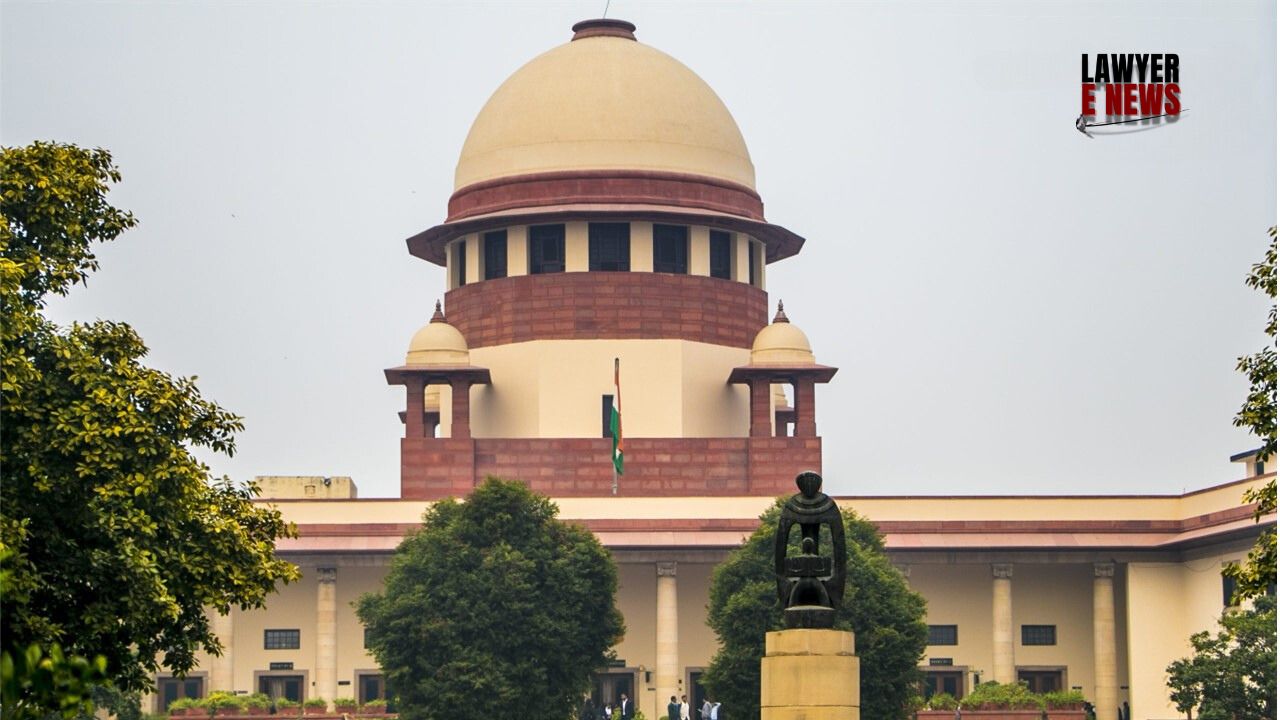-
by Admin
15 February 2026 5:35 AM



Supreme Court of India delivered a significant judgment addressing the boundaries of judicial criticism and the independence of judicial officers. The Court expunged adverse remarks made by the Delhi High Court against Additional Sessions Judge Sonu Agnihotri in its orders dated March 2, 2023, and May 9, 2023. It clarified the principles guiding superior courts when reviewing judicial conduct.
The controversy arose from an anticipatory bail application that Judge Sonu Agnihotri heard in a theft case under Sections 380 and 411 of the Indian Penal Code. While rejecting the application, Judge Agnihotri had criticized police officers for alleged irregularities in the investigation, remarking that the investigation appeared “fishy” and not conducted “in a proper manner.” Directions were issued for inquiries into police conduct, and show cause notices were served on the Investigating Officer (IO) and Station House Officer (SHO).
Subsequently, the IO and SHO challenged these remarks in the Delhi High Court under Section 482 of the Criminal Procedure Code. The High Court expunged the remarks and criticized the Judge, labeling his actions as “judicial misadventures” and advising him to exercise “circumspection, care, and caution.”
Judge Agnihotri approached the Supreme Court seeking to expunge the adverse remarks made against him.
The Supreme Court addressed two aspects: the expunging of remarks against police officers by the High Court and the High Court’s criticism of Judge Agnihotri.
The Supreme Court emphasized that judicial independence must be balanced with the principles of fairness and restraint. Justice Abhay S. Oka cited State of U.P. v. Mohd. Naim, stating:
“Judicial pronouncements must be judicial in nature and should not normally depart from sobriety, moderation, and reserve. Sweeping generalizations defeat the very purpose for which they are made.”
The Court recognized the importance of judges expressing their views fearlessly but noted that personal criticism should be avoided unless absolutely necessary for resolving the case.
The Court disapproved of the High Court’s language, describing it as inappropriate for judicial discourse. Justice Oka remarked:
“Describing the appellant’s approach as a ‘judicial misadventure’ was improper. A judgment on the judicial side cannot be used to advise individual judicial officers—that can only be done on the administrative side.”
The Court referred to In Re: K, A Judicial Officer, observing that criticism in judgments can irreparably harm the dignity and morale of judicial officers. It stated:
“The remarks against a judicial officer harm their dignity and create unnecessary public embarrassment. Such criticism can undermine the judicial authority of the officer and should be avoided.”
The Court acknowledged the appellant’s concern that adverse remarks could tarnish his otherwise unblemished career. Highlighting the heavy workload and pressure faced by judges, the bench noted:
“Every Judge, irrespective of post or status, is likely to commit errors… While correcting these errors, strictures should not personally target a Judicial Officer, causing prejudice and embarrassment.”
The Supreme Court allowed the appeal and expunged the High Court’s remarks against Judge Agnihotri. The bench clarified:
“The direction to expunge the remarks made against the appellant will not bind the administrative side of the High Court.”
The Court reiterated that superior courts should avoid personal criticism of judicial officers in judgments, suggesting that any concerns about conduct should be addressed confidentially on the administrative side.
This judgment underscores the importance of safeguarding judicial independence and ensuring that criticism of judicial conduct is exercised responsibly. It reinforces the principle that errors in judgments should be addressed with respect to the judicial office, avoiding personal denigration.
Date of Decision: November 22, 2024
